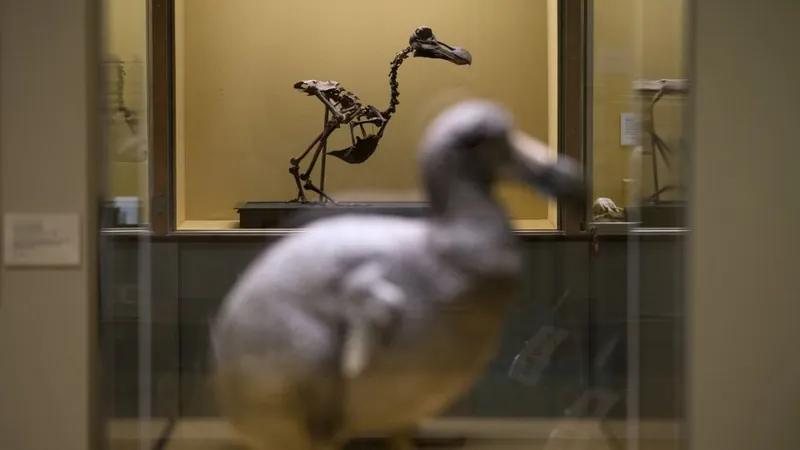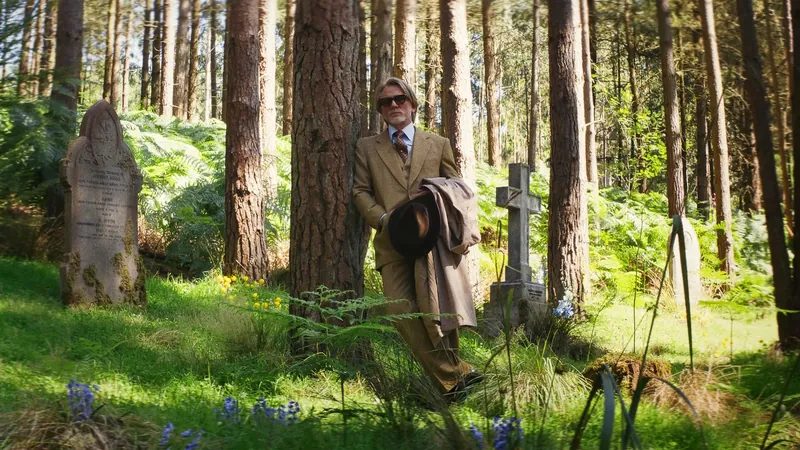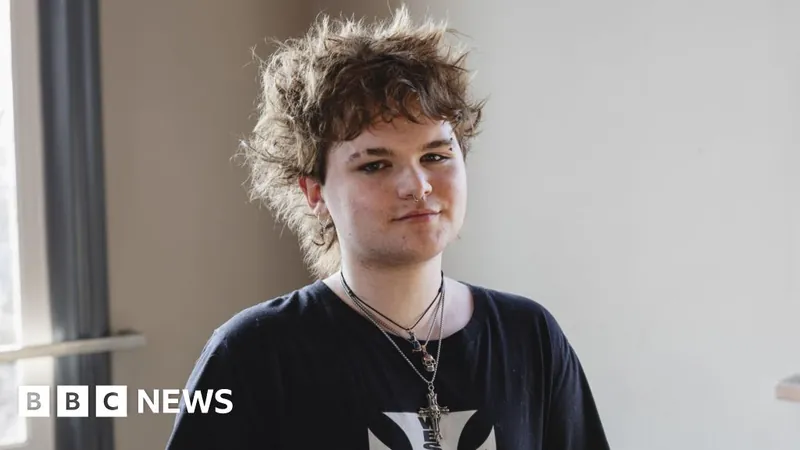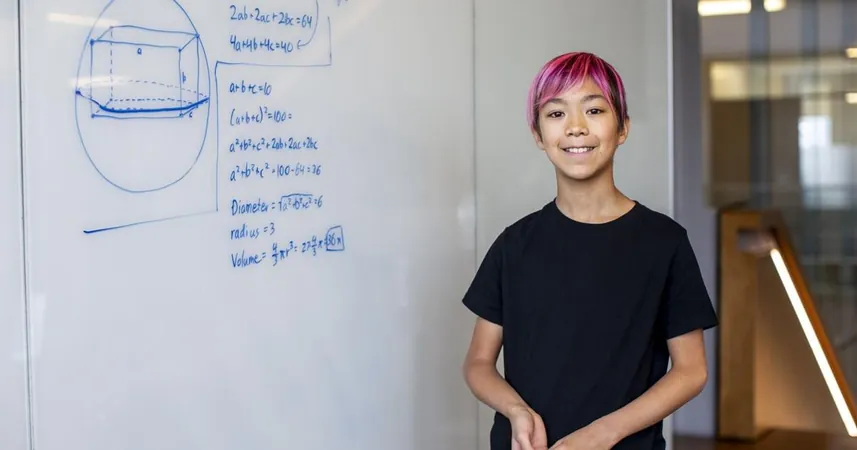
Reviving the Dodo: A Bold Step Towards De-Extinction
2025-09-17
Author: William
Colossal Biosciences Sets Sights on the Dodo's Return
Imagine a world where the dodo, the iconic symbol of extinction, struts the earth once more. Texas-based biotech firm Colossal Biosciences is making strides toward transforming this fantasy into reality. The firm recently reported significant advancements in their ambitious project to genetically engineer a version of this long-gone species.
A Breakthrough with Pigeon Cells
Colossal's team has successfully cultured specialized cells from the rock dove, widely recognized as the humble city pigeon, setting the stage for further research. Their plan is to apply similar techniques to culture cells from the Nicobar pigeon, the dodo's closest living relative, which shares essential genetic traits.
A Journey Still in Its Infancy
While Colossal is still several years away from achieving their dream of creating a living, walking dodo, they view this latest breakthrough as a crucial milestone. Beth Shapiro, the company's Chief Science Officer, remarked, "This is a pivotal step for both the dodo project and bird conservation in general. With this foundation laid, we are ready to move forward!"
The Resurrection Rollercoaster
Colossal generated buzz and debate in the scientific community when they announced the birth of three dire wolf pups earlier this year. They utilized ancient DNA, cloning, and gene-editing technologies, embarking on a process the company calls de-extinction. The firm has plans to revitalize other extinct species, including the woolly mammoth and the Tasmanian tiger.
Navigating the Challenges of Avian Genetics
However, resurrecting a bird like the dodo presents unique challenges compared to mammals. Scientists can't clone bird cells like they do with mammals due to their egg-laying reproductive system. Shapiro emphasized that the process requires creating two separate generations, complicating the timeline.
Growing a Germ of Hope
On Wednesday, Colossal revealed its breakthrough in culturing primordial germ cells (PGCs), crucial for forming eggs and sperm. This advancement, achieved through extensive experimentation with over 300 recipes, is expected to revolutionize avian reproductive technologies and is essential for the company's dodo initiative.
Eyes on the Nicobar Pigeon
The next steps involve creating live rock pigeons from these cells as proof of concept. Concurrently, Colossal is cultivating PGCs from the Nicobar pigeon and establishing a breeding colony in Texas. The plan is to edit these cells to include dodo traits, harvesting insights from museum specimens of the extinct bird.
Skepticism Surrounds De-Extinction Claims
Critics argue that while advancements in genetic engineering are commendable, they question the feasibility of truly resurrecting extinct species. According to conservationists, any attempt would likely result in a genetically modified hybrid rather than a true dodo. Nonetheless, Colossal aims to create functional versions, echoing the dodo's essential traits.
Implications Beyond the Dodo
The technology Colossal is developing has broader implications for avian conservation. Experts suggest that gene-editing could help endangered species adapt to changing environments, disease, and habitat loss. While Colossal's initiatives draw significant funding and attention, experts stress that technology must complement conservation efforts, not replace them.
The Dodo Project: An Evolutionary Quest
As Colossal plots its course towards reviving the dodo, their remarkable journey raises questions not only about the past but also about the future of biodiversity. While the dream of walking with dodos may still be distant, the quest is igniting conversations on conservation and the power of advanced science in preserving our planet's rich heritage.









 Brasil (PT)
Brasil (PT)
 Canada (EN)
Canada (EN)
 Chile (ES)
Chile (ES)
 Česko (CS)
Česko (CS)
 대한민국 (KO)
대한민국 (KO)
 España (ES)
España (ES)
 France (FR)
France (FR)
 Hong Kong (EN)
Hong Kong (EN)
 Italia (IT)
Italia (IT)
 日本 (JA)
日本 (JA)
 Magyarország (HU)
Magyarország (HU)
 Norge (NO)
Norge (NO)
 Polska (PL)
Polska (PL)
 Schweiz (DE)
Schweiz (DE)
 Singapore (EN)
Singapore (EN)
 Sverige (SV)
Sverige (SV)
 Suomi (FI)
Suomi (FI)
 Türkiye (TR)
Türkiye (TR)
 الإمارات العربية المتحدة (AR)
الإمارات العربية المتحدة (AR)